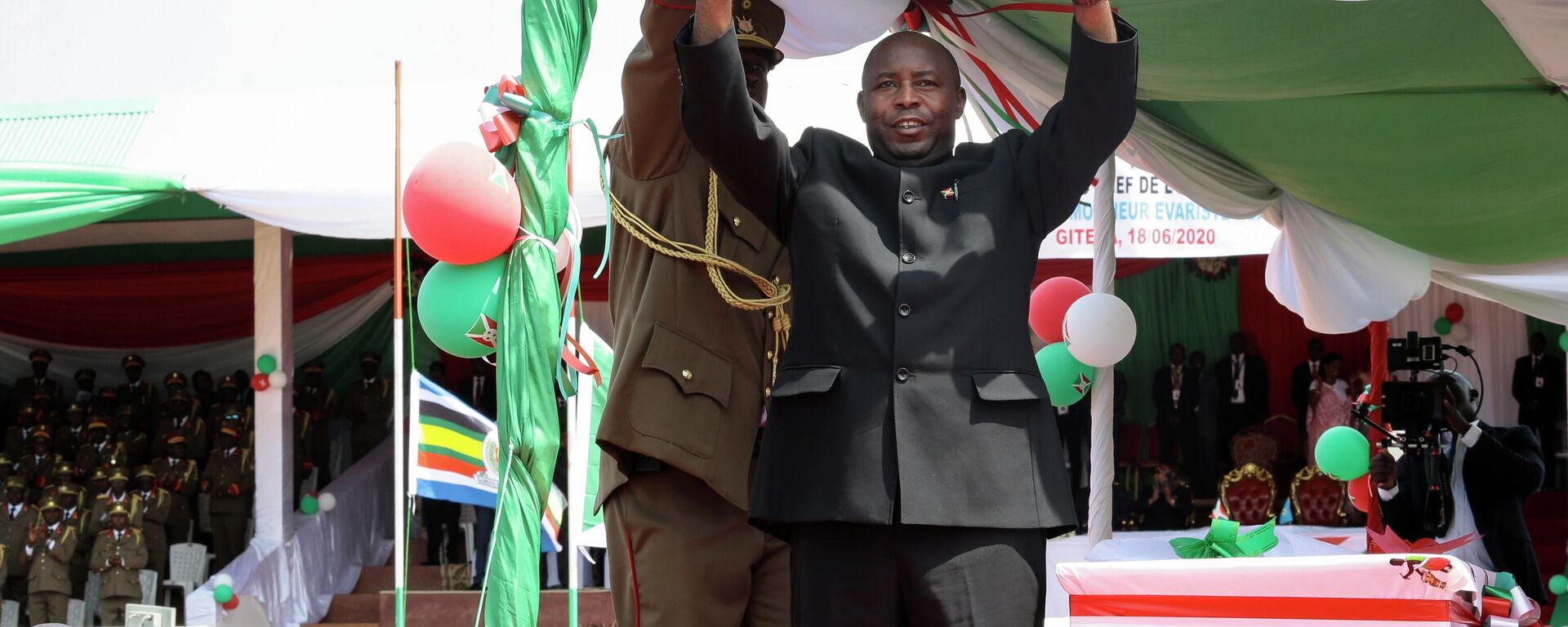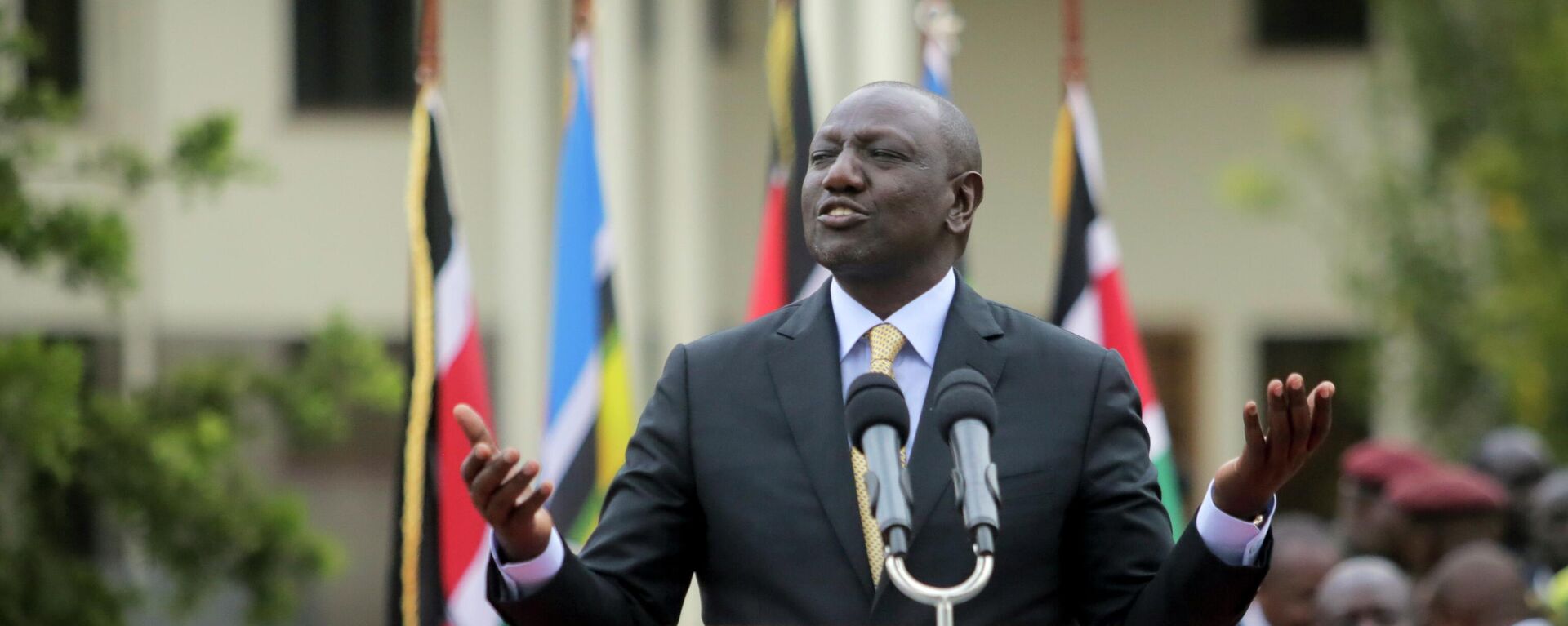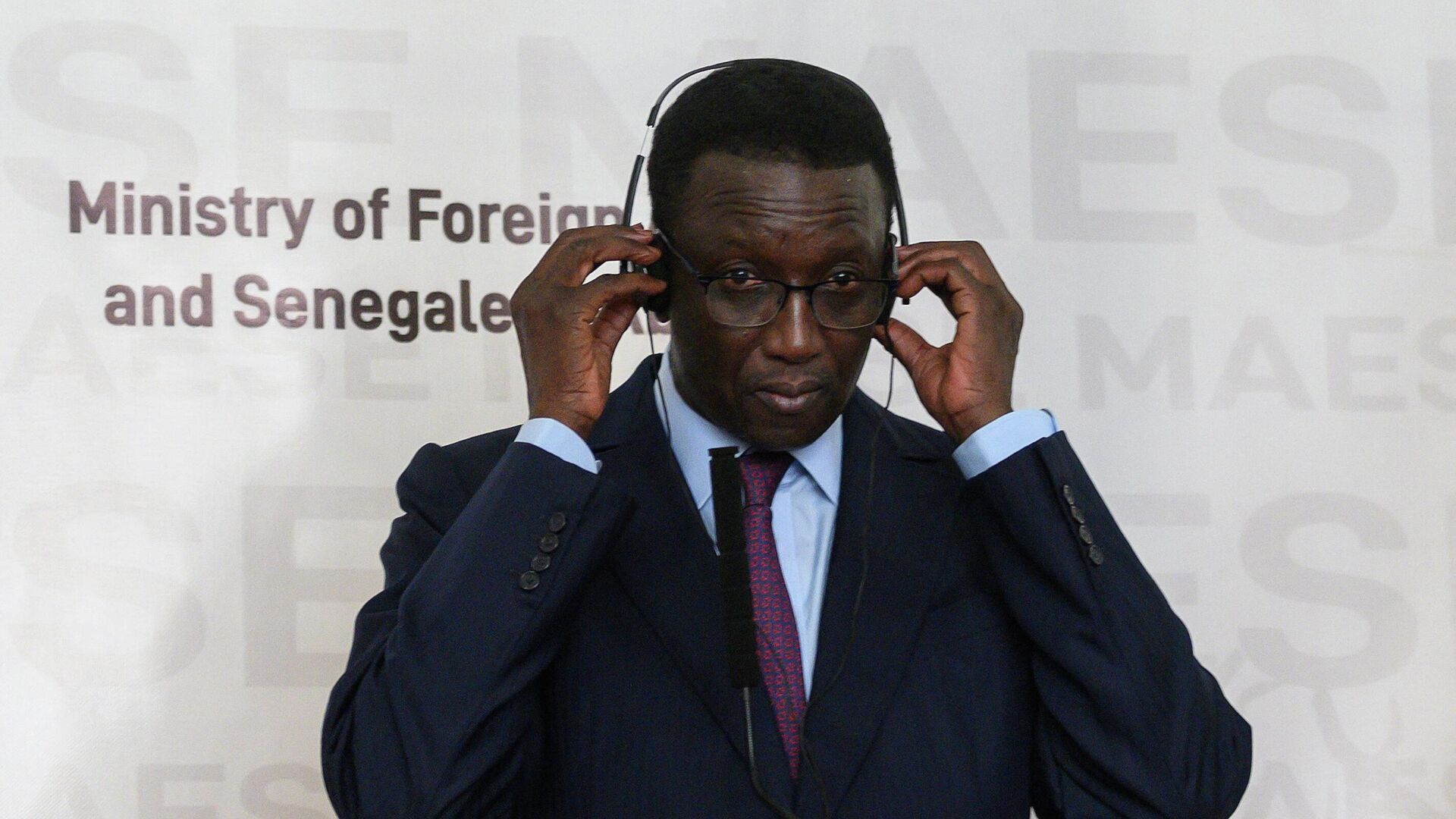https://sputnikglobe.com/20220918/senegals-president-appoints-first-prime-minister-in-three-years-1100918166.html
Senegal's President Appoints First Prime Minister in Three Years
Senegal's President Appoints First Prime Minister in Three Years
Sputnik International
The prime minister’s post in Senegal was abolished in 2019; however, it was later restored, with the country's president citing his duties as the current... 18.09.2022, Sputnik International
2022-09-18T08:55+0000
2022-09-18T08:55+0000
2022-11-23T11:36+0000
africa
senegal
elections
https://cdn1.img.sputnikglobe.com/img/07e6/09/12/1100920206_0:148:2844:1748_1920x0_80_0_0_798a2bec0298e8f4422fbff7272c8613.jpg
Senegal’s President Macky Sall appointed Amadou Ba, a former Finance and Foreign Minister, as the new country’s prime minister on Saturday. Ba became Senegal’s first PM in three years; the post had been abolished following Sall’s reelection in 2019."The major priorities that the president has outlined include improving household purchasing power, taming inflation, security, housing, vocational training, employment and entrepreneurship," Ba said on national television after a meeting with Sall on Saturday.A few hours after the appointment a new 38-member Cabinet was established.The appointment took place as just two month earlier, Sall's ruling coalition lost its confident majority in parliamentary elections.From the eight major political coalitions that entered the election, two shared the success. The ruling coalition Benno Bokk Yakkaar obtained 82 MPs and Yewwi Askan Wi –Wallu coalition, made up of two opposition groupings, Yewwi Askan Wi and Wallu Senegal, obtained 80 MPs (56 went to Yewwi Askan Wi and 24 to Wallu-Senegal respectively).For the first time in Senegal's political history, an opposition front managed to divide parliament without obtaining an absolute majority.The result wasn’t bad luck for the ruling coalition though, as just six months before the poll, Benno Bokk Yakaar had also lost the major cities in municipal, regional and mayoral elections.According to The Conversation, in the run-up to the elections, some commentators suggested the coalition’s performance would show the level of support there was for incumbent President Macky Sall, and his possible attempt to run for another term in 2024.The opposition’s breakthrough can reportedly be interpreted as a dramatic fall in the popularity of Sall and his coalition. The electorate reportedly blamed the current government for the lack of accountability, justice and deteriorating socio-economic conditions.Macky Sall came to power in 2012 and was elected again in 2019 on promises of large-scale infrastructure expansion, as the country is set to start producing oil and natural gas next year, The Conversation reports.His second term was reportedly overshadowed with economic hardships, partly as a result of the COVID-19 pandemic and the crises fueled by the West’s sanctions against Russia amid its military operation in Ukraine, which has led to global supply disruptions as well as food and energy crises.Sall’s popularity allegedly also went downhill due to the arrest of Ousmane Sonko, Sall's main opponent, who came in third in the 2019 presidential election. Sonko was charged with rape and denies all wrongdoing. Sonko was released but many protesters saw his arrest as an attempt by Sall to get rid of a prominent rival and clear his path for a third term bid, although Sall never said he would participate in the presidential election in 2024.“Stop this debate and let’s work. I never said I would serve a third term,” said Sall on March 12th, in front of an NGO delegation. But Sall never said the opposite either, which worries his opponents, according to TheAfricaReport.
https://sputnikglobe.com/20220908/burundis-president-dismisses-prime-minister-over-alleged-coup-plot-1100552596.html
https://sputnikglobe.com/20220913/willam-ruto-sworn-in-as-kenyan-president-after-high-court-rejected-rivals-election-fraud-claims-1100736754.html
africa
senegal
Sputnik International
feedback@sputniknews.com
+74956456601
MIA „Rossiya Segodnya“
2022
News
en_EN
Sputnik International
feedback@sputniknews.com
+74956456601
MIA „Rossiya Segodnya“
Sputnik International
feedback@sputniknews.com
+74956456601
MIA „Rossiya Segodnya“
senegal, elections
Senegal's President Appoints First Prime Minister in Three Years
08:55 GMT 18.09.2022 (Updated: 11:36 GMT 23.11.2022) The prime minister’s post in Senegal was abolished in 2019; however, it was later restored, with the country's president citing his duties as the current chairman of the African Union in justifying the rule.
Senegal’s President Macky Sall appointed Amadou Ba, a former Finance and Foreign Minister, as the new country’s prime minister on Saturday. Ba became Senegal’s first PM in three years; the post had been abolished following Sall’s reelection in 2019.
"The major priorities that the president has outlined include improving household purchasing power, taming inflation,
security, housing, vocational training, employment and entrepreneurship," Ba said on national television after a meeting with Sall on Saturday.
A few hours after the appointment a new 38-member Cabinet was established.
The appointment took place as just two month earlier, Sall's ruling coalition lost its confident majority in parliamentary elections.
From the eight major political coalitions that entered the election, two shared the success. The ruling coalition Benno Bokk Yakkaar obtained 82 MPs and Yewwi Askan Wi –Wallu coalition,
made up of two opposition groupings, Yewwi Askan Wi and Wallu Senegal, obtained 80 MPs (
56 went to Yewwi Askan Wi and 24 to Wallu-Senegal respectively).

8 September 2022, 22:06 GMT
For the first time in Senegal's political history, an opposition front managed to divide parliament without obtaining an absolute majority.
The result wasn’t bad luck for the ruling coalition though, as just six months before the poll, Benno Bokk Yakaar had also lost the major cities in municipal, regional and mayoral elections.
According to
The Conversation, in the run-up to the elections, some commentators suggested the coalition’s performance would show the level of support there was for incumbent President Macky Sall, and his possible attempt to run for another term in 2024.
The opposition’s breakthrough can reportedly be interpreted as a dramatic fall in the popularity of Sall and his coalition. The electorate reportedly blamed the current government for the lack of accountability, justice and deteriorating
socio-economic conditions.
Macky Sall came to power in 2012 and was elected again in 2019 on promises of large-scale infrastructure expansion, as the country is set to start producing oil and natural gas next year, The Conversation reports.

13 September 2022, 18:05 GMT
His second term was reportedly overshadowed with economic hardships, partly as a result of the COVID-19 pandemic and the crises fueled by the West’s sanctions against Russia amid its military operation in Ukraine, which has led to global supply disruptions as well as food and energy crises.
Sall’s popularity allegedly also went downhill due to the arrest of Ousmane Sonko, Sall's main opponent, who came in third in the 2019 presidential election. Sonko was charged with rape and denies all wrongdoing.
Sonko was released but many protesters saw his arrest as an attempt by Sall to get rid of a prominent rival and clear his path for a third term bid, although Sall never said he would participate in the presidential election in 2024.
“Stop this debate and let’s work. I never said I would serve a third term,” said Sall on March 12th, in front of an NGO delegation. But Sall never said the opposite either, which worries his opponents, according to
TheAfricaReport.




